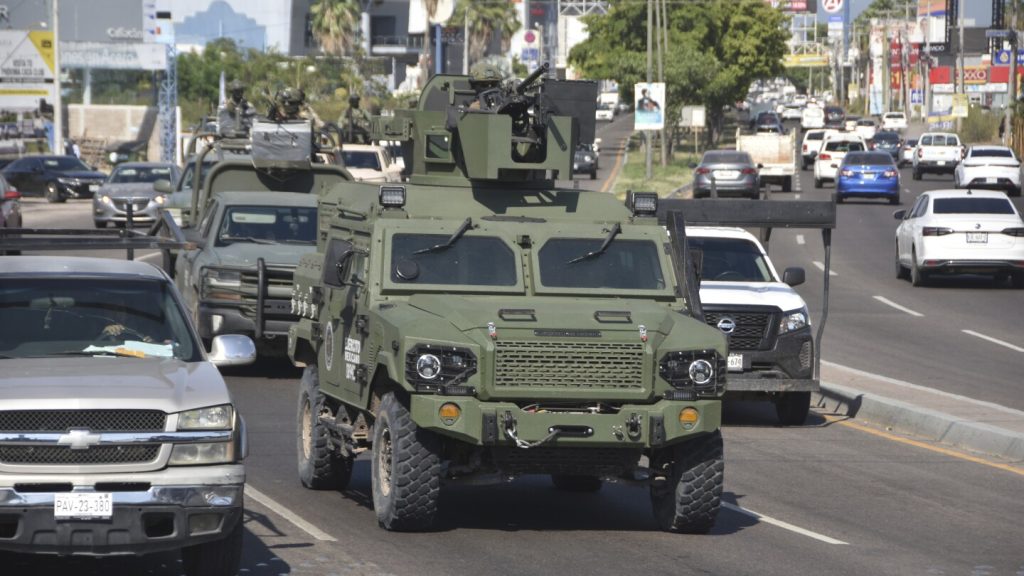Assailants fired a dozen gunshots at a building housing the newspaper El Debate in the embattled northern Mexico state of Sinaloa, the media outlet said Friday. The newspaper is based in Culiacan, the state capital, where rival factions of the Sinaloa Cartel have been staging violent battles. The attackers arrived in two vehicles and opened fire with a rifle before fleeing the scene. The Mexican Media Alliance condemned the attack as a direct assault on press freedom and the public’s right to information.
The escalation of violence in Sinaloa follows the arrest of drug lords Ismael “El Mayo” Zambada and Joaquín Guzmán López in the United States after they flew there in a small plane. Zambada claimed he was forced aboard the plane by Guzmán López, sparking a violent conflict between Zambada’s faction and the “Chapitos” group led by the sons of imprisoned drug lord Joaquín “El Chapo” Guzmán. Journalists in the region have reported being stopped by gunmen and threatened, making it difficult for them to cover the ongoing gun battles in the area.
The fear among journalists is well-founded, as incidents of violence against media personnel have been documented in Sinaloa in the past. In 2022, El Debate’s columnist Luis Enrique Ramírez was abducted and killed in Culiacan. Additionally, in 2017, Javier Valdez, an award-winning reporter specializing in covering drug trafficking, was slain in the state capital. The situation has forced media outlets to rethink their coverage protocols and adapt to the dangerous environment where they operate.
In response to the rising violence, residents in Sinaloa have turned to social media platforms for information on the security situation in the region. Videos depicting burning vehicles, bodies, and cartel activities circulate online, providing a glimpse of the ongoing conflict. State authorities, however, have been accused of downplaying the violence, insisting that everything is under control. The recent attack on the newspaper El Debate underscores the challenges faced by journalists in reporting on the cartel wars in Sinaloa.
The instability in Sinaloa has prompted some drastic measures, such as the temporary disarming of the municipal police force in Culiacan by soldiers to prevent their collusion with drug cartels. The resignation of the chief state prosecutor has also raised questions about the government’s ability to address the escalating violence. President Claudia Sheinbaum condemned the attack on the newspaper and assured that investigations are underway. However, concerns remain about the safety of journalists and the public amidst the ongoing cartel feuds in the region.
As the conflict in Sinaloa continues to unfold, press freedom remains under threat, and journalists operating in the region are at risk of violence and intimidation. The attack on El Debate highlights the dangers faced by media outlets reporting on the cartel wars in Mexico. With limited intervention from state authorities, the situation remains volatile, forcing residents to rely on social media for updates on the security situation. The international community must monitor the situation closely to ensure the safety of journalists and promote the freedom of the press in Sinaloa.


